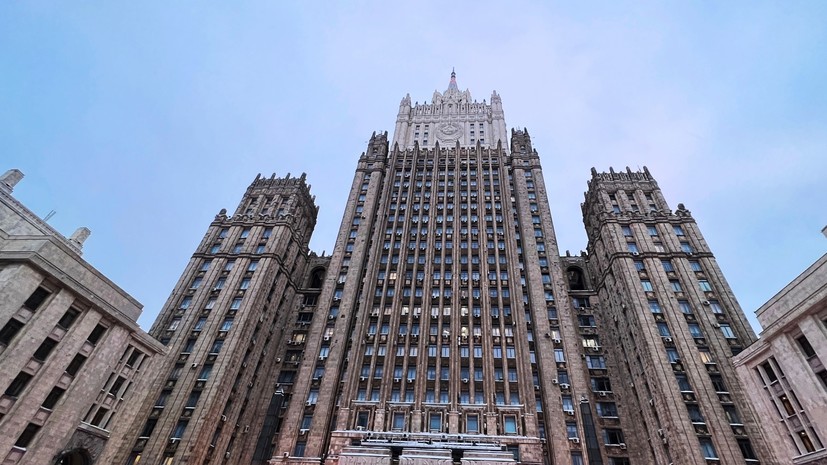The Russian Ministry of Foreign Affairs called the next package of European sanctions against the Russian Federation fruitless attempts to exert pressure through unilateral restrictive measures.
“On February 23, the EU countries adopted the next, 13th sanctions package.
We consider such actions of the European Union illegal, undermining the international legal prerogatives of the UN Security Council,” the Foreign Ministry said in a statement.
The Foreign Ministry stated that in response to these measures, Moscow has significantly expanded the list of representatives of European institutions and EU member countries who are prohibited from entering Russian territory.
As the ministry clarified, we are talking about representatives of law enforcement agencies and commercial organizations of EU countries, citizens of EU member countries responsible for providing military assistance to the Kiev regime, as well as representatives of European structures involved in the prosecution of Russian officials for “illegal arrests and removal of people.” from Ukrainian territories."
In addition, restrictive measures affected EU representatives involved in creating a “tribunal” against the Russian authorities, advocating the confiscation of Russian state assets or using profits from them in the interests of Ukraine, as well as supporting sanctions against Russia and trying to undermine the Russian Federation’s relations with other states.
Also on russian.rt.com The IMF said that Russia was surprised by the strength of economic growth under sanctions
Among other things, the list includes representatives of the Council of Europe, members of legislative assemblies of European Union countries, participants in the parliamentary assemblies of the OSCE and PACE, who “systematically make aggressive statements against Russia.”
“We confirm that any unfriendly actions by Western countries will continue to receive a timely and adequate response,” the Foreign Ministry concluded.
On February 22, the European Union announced the introduction of the 13th package of sanctions against Russia.
As follows from the press service of the European Council, the new restrictive list includes 106 individuals and 88 legal entities.
The report said the new measures are aimed primarily at the military and defense sectors, as well as persons associated with them.
It was also reported that restrictions on the export of dual-use goods to Russia were tightening, including equipment and technologies that could contribute to the technological improvement of the Russian defense sector.
In particular, restrictions were imposed on companies located in third countries, such as India, Sri Lanka, China, Serbia, Kazakhstan, Thailand and Turkey.
According to the EU, these companies include both firms helping Russia circumvent existing trade restrictions, and Russian companies involved in the development, production and supply of electronic components for the Russian military-industrial complex.
Among other things, the innovations are designed to limit the export to Russia of goods that could improve Moscow’s capabilities in the development and production of drones.
Shortly before the announcement of a new package of EU sanctions, Russian Foreign Minister Sergei Lavrov said that the European Union has long been concerned not with the welfare of the citizens of its countries, but with “keeping up with the United States in anti-Russian hysteria.”
“Judging by how the situation is developing, the United States is now losing primacy to the European Union in this Russophobic campaign.
History will put everything in its place.
And let the residents of the countries that are members of the EU draw conclusions and think about who they brought to power,” Lavrov said, answering questions from the media on February 19.

